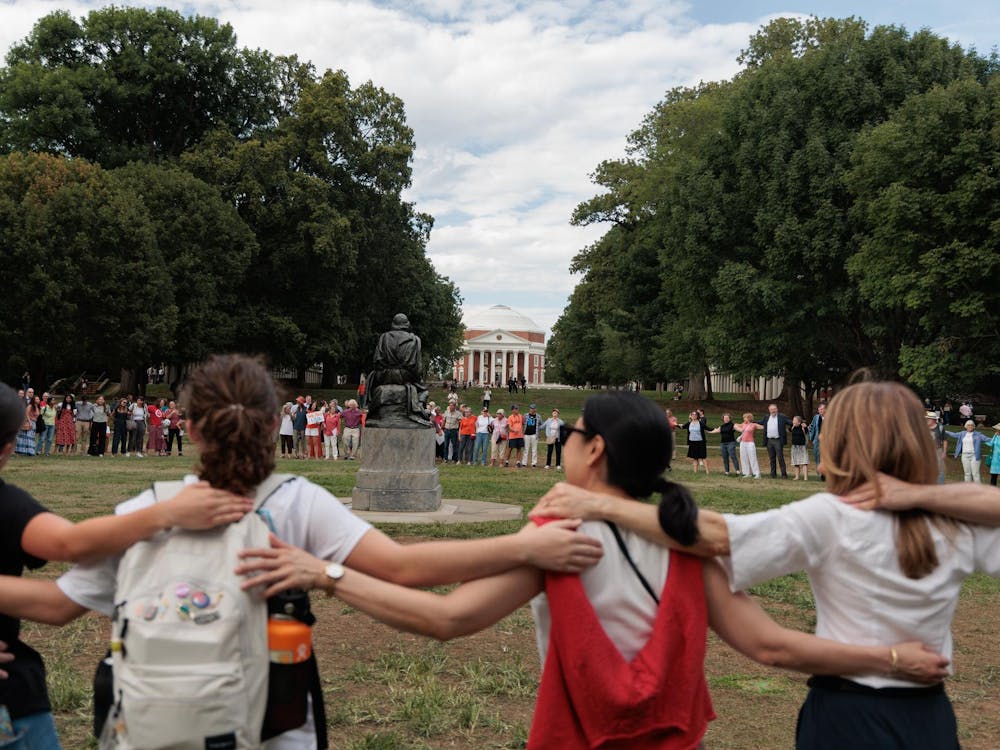Ryan McElveen, chair of Student Council's Committee on Curriculum Internationalization, presented a report last night on ways the University could direct its efforts to internationalize its curriculum and the University community as a whole. The committee's recommendations included ideas aimed at reorganizing the curriculum to break barriers between schools within the University and helping students become more involved in internalization programs.
Along with presenting the recommendations to members of the University community, McElveen released the results of last spring's survey, which sought to gauge student interest in de-Westernization programs and student satisfaction with current University programs.
In the report, McElveen emphasized the need for the University to embark on internationalization efforts that would broaden students' perspectives during their time at the University.
McElveen said the current state of University internationalization efforts "alienates" various sectors of faculty and students and limits scholarly thinking and investigation by not placing sufficient focus on non-Western thought.
"Jefferson believed in the unlimited scope of the mind, a mind that would take into account perspectives from across the globe, not just those from sea to shining sea and from the white cliffs of Dover to the Turkish border," McElveen said. "He saw the conquest mind set as antithetical to our principles and inconsistent with our government."
Committee members agreed that a lack of internationalization has affected the University's environment and reputation.
"The environment at U.Va. is always being hailed as one of the best for student experiences, so much that many students don't want to take a semester abroad because they fear losing the on-Grounds experience," McElveen said. "Despite this attitude, U.Va. students want to know more about the world."
According to McElveen, responses from the student survey indicated a need to address the opportunities available to study areas outside of the United States and Europe. He presented suggestions for addressing this, such as ensuring that all students have the chance to study abroad. Ideas included increasing awareness of study abroad programs and bringing schools together to make sure students outside of the College of Arts & Sciences have opportunities to study abroad.
"ISO [the International Studies Office] is well aware that it needs to work with schools other than the College to send students abroad," McElveen said. "This is one element of the problem where bringing schools together to address these problems has not been sufficiently addressed."
McElveen said a lack of information about research grants such as the Global Health Grant made it difficult for students to study on a more international basis.
The report also cited a need for the University to expand its language offerings to include more classes in non-Romance languages.
"Students by far most need the Arabic and Chinese programs to expand to meet increasing demand," McElveen explained, adding that in order to keep up with student demand and with the standards of other public universities, "U.Va. must begin to teach new languages."
The committee also suggested formatting a new program of study for first-years in which students would choose a field of study within separate, yet "interconnected realms" to pursue and present papers that could later serve as a basis for student research scholarships. Another option would give first-years the ability to take a "gap year" after graduating high school to pursue studies abroad that they could then later continue at the University.
"Students overwhelmingly want a kind of international certification program that could result from a kind of international track to be on Grounds and not to spend the majority of their time away from the University," McElveen said.
In the report, he further emphasized the importance of changing the perspectives of students.
"The goal was to change people's perspective at the University," McElveen said. "Its great to use tradition to build upon programs like this."
Interim Dean of Students Allen Groves commented on the report, saying that although he was not involved in the administrative parts of the issue he felt internationalization was an important part of the University dialogue.
"When students come to the faculty and say the University could be better about certain things, then they should be able to talk to the faculty and stand up for their way of thinking," Groves said.






